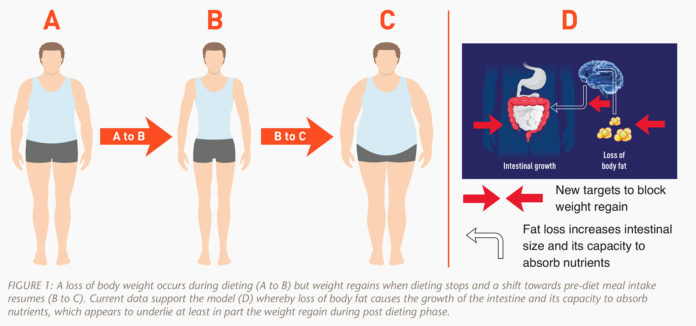

Teagasc research shows that loss of body fat causes the growth of the intestine and increases its capacity to absorb nutrients. This presents new approaches for weight management.
Researchers at Teagasc and the University of Aberdeen have found that the depletion of fat stores inside the body causes the growth of the intestine and that this occurs via a signaling mechanism involving the brain (fat-brain-intestine signaling).
The world is experiencing an obesity epidemic which affects over 600 million adults worldwide and is caused by the over-consumption of high-energy palatable foods. While dieting is a popular way to lose body fat it may cause the intestine to grow; and so, the resulting increased nutrient absorptive capacity of the intestine may, in turn, cause quicker weight gain post dieting. The researchers have been looking into the use of whey proteins to address this problem as these proteins cause the gut to shrink.
“This work will pave the way for better more sustainable weight loss interventions”, explains Dr. Kanishka Nilaweera, Teagasc Food Research Centre, Moorepark.
Dr. Nilaweera adds: “Along with the obesity epidemic there is an under-nutrition epidemic which affects over 462 million people worldwide. This is due to either physical inability to consume food (due to old age or chronic illness) or psychological reasons (anorexia). For the affected individuals, strategies have to be developed to better absorb the nutrients that they are currently getting. This can potentially be done by targeting fat-brain-intestinal signaling components sensitive to nutrients with the objective of stimulating the growth of the intestine”.







